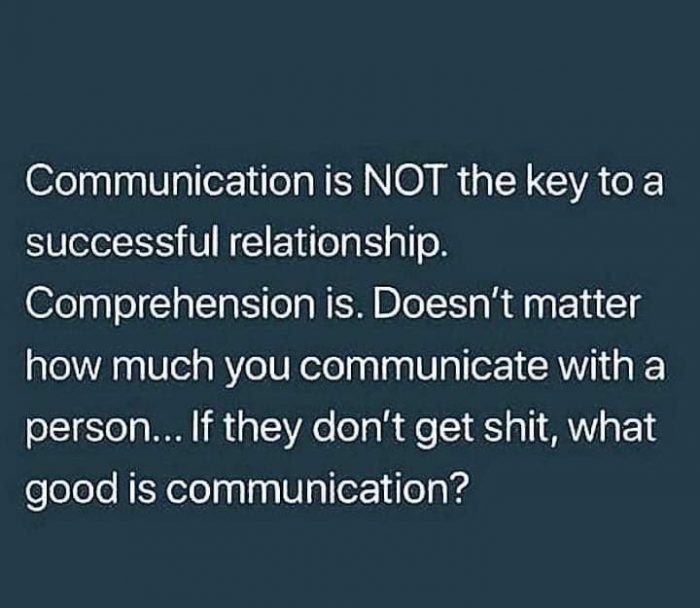I grew up in a household where the motto was, “Do as I say, not as I do.” The result of that motto was a lot of unresolved issues and confusion on what boundaries were. I learned a lot about forgiveness, overcoming conflicts and how to properly apologize through other relationships outside of my family. When my children were very little I went to great lengths to teach them about the proper way to apologize. It was important to me that I teach my children the value of true forgiveness. An example of this would be, if one child took a toy away from the other and the other child retaliated by hitting them. I would separate them for a moment, so they could settle their emotions. I would let them cry it out alone on the stairs or in their room, with the purpose of releasing their anger and frustration. Once they calmed down on their own, I would talk to them about how the situation made them feel. I would explain to each of them how their behavior or reaction to the other child was inappropriate and why it deserved an apology. Then I would have them say, “I am sorry for….(whatever their part of the situation was).” Then I would have the other child respond, “I accept your apology, please don’t do that to me ever again.” I made it a point to make sure that they took responsibility for their part of the situation and understood the reasons behind it. I also made sure they never said the words, “That’s ok.” I told them that when someone apologizes, never tell them ‘it’s ok’ because that is inviting them to repeat the behavior. We wouldn’t be in the situation we are in right now if that was ok to do, right? Then they would go back to having fun and not carrying any ill feeling.
Of course as they got older this evolved into bigger feelings – like not feeling ready to apologize or feeling so upset that you didn’t want to accept their apology. Now their emotions were getting more complicated. Now there was a little voice in their head feeding them negative thoughts about their own self value and worth. This required longer separation from each other and more in depth discussions on why they felt a certain way. The biggest shocker was when my daughter refused to apologize one day because she meant to do it. She said she did it on purpose and she was not going to apologize for it. I had to pause for a moment and remember the day I felt that way. I had a situation where my reaction to the person was appropriate to the circumstances. My reaction was the consequence of their actions. I remember the person getting so offended and giving me the silent treatment. When we finally had the opportunity to air out our differences, I recall the person saying to me, “Ok, I’ve heard all your reasons for the way you acted but I’m not hearing any apology.” I responded, “Because I’m not sorry.” That was an empowering moment.
I’m sure most of us have been in a situation where we felt like we were being taken advantage of. You finally find your voice and put your foot down. After many discussions and realizations, you finally get to a point where the other person acknowledges that they have been taking you for granted and they apologize for their behavior. You feel liberated that now firm boundaries can be set and this person is going to do better moving forward. Then you say…. ‘it’s ok’ and the person continues taking you for granted. Maybe they were a little better at first but eventually they revert back to their old ways. Why? Because you accepted an apology that wasn’t genuine. They did not fully understand your perspective and they do not have the depth of compassion to realize the impact that their actions have on you. They just told you what you wanted to hear in that moment but they had no intention of ever changing for you. Why should they? Who are you to make a person change? Maybe that’s just who they are. Why can’t you accept them for who they are in this very moment, without compromising your own value or worth? Why should they compromise a part of themselves to make you feel better? Since you’re the one with the problem – maybe you are the problem. Maybe you are putting unrealistic expectations on a person to fill a need within you that IS NOT THEIR JOB.
Going back to the story of my daughter not wanting to apologize – what do I do? All this time I’ve been making it a point to teach them empathy, compassion and understanding. The importance of forgiveness and properly apologizing with the intention of changing your behavior. Here stood before me, a little mirror version of myself, arms crossed, pouty mouth, brows furrowed and standing firm in the fact that she was unapologetic. I really had to take a step back and make a conscious choice on how to handle this situation. Honestly, I don’t even remember the incident or the story behind it, I just remember thinking to myself, “This is it. This is that moment where a parents voice will become their child’s inner voice when they become an adult.” What do I want the adult version of my daughter to say to herself in a situation that she finds herself feeling unapologetic? I juggled with this in my mind. Is she being stubborn? Is she being defiant? Is she being disrespectful? Is she causing harm to the other person? What effect will this have on my other daughter if I support her sister’s actions? Then I thought – Who AM I? What example have I been showing my daughters?
It took me a long time to master my emotions and have the ability to respond to people and situations, rather than react. I often say that you will only get a rise out of me under two conditions – If I feel completely disrespected or if you have caused me harm in any way. Other than that, everything else to me is just a story people made up in their heads and their emotions are causing them to over react. I have no problem apologizing or admitting when I am wrong. Most people tease me that I can forgive a fly and some even see it as a weakness. Honestly I just have no interest in carrying grudges or exhausting my thoughts on negative emotions. I know that I have the capacity to see through a situation and get to the heart of the matter. I joke that it’s a blessing and a curse, because I always found myself over explaining the situation. Most people weren’t able to see my perspective or understand how their behavior affected me. I always felt unseen and unheard. It took me decades of trial and error and overanalyzing myself to realize – it’s not that serious. If I move forward with purpose and my intentions are in the right place, then there is nothing to apologize for. I am not in charge of the other person’s reactions or intentions. I can only be responsible for myself. The only expectation I can hold is to keep myself grounded and stable enough to handle any situation with a good heart.
So I told my daughter, “You don’t have to apologize for something you intended to do. But, you owe it to yourself and to the person to have a conversation as to why things went down like that. Apologies are only worth the weight of it’s intentions and the actions that follow.”
The point is, most of us were taught to apologize without the emotional intelligence needed to create healing, compassion and empowerment. It takes an incredible amount of courage and strength to allow yourself to be vulnerable enough to expose your true feelings to another person. To really focus on the heart of the matter – which is that you care about the other person. If they didn’t matter to you, then you wouldn’t be so upset. It wouldn’t be causing you any pain or anguish. Are you putting your self worth in their hands or are you going to take the reigns of your own heart and stand in your truth. Set healthy boundaries and walk away from the people that continue to take you for granted. You are worth so much more than you give yourself credit. When you heal the parts of yourself that feel unheard, unseen, unloved, and unappreciated, you create a space within yourself that feels safe to be unapologetically YOU. The first step is forgiving yourself for putting yourself in that situation to begin with. After that it’s all about taking responsibility and navigating your way through the healing process.


 Share on bsky
Share on bsky





Read 1 comment and reply